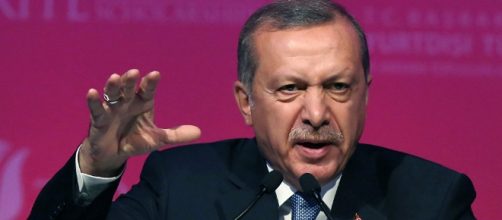The crisis as respects the Turkish-German relations was triggered on the one hand by the case of the journalist Deniz Yücel and on the other hand by the cancellation of three rallies pro-Erdogan in Germany.
Turkish President Recep Tayyip Erdoğan accused the Berlin on Friday that it "helps and shelters terrorists". He said in a speech that Deniz Yücel, correspondent in Turkey of the German daily Die Welt, jailed on Tuesday for "terrorist propaganda" is "representative of the PKK" - Kurdistan Workers' Party, organization decreed "terrorist" by Ankara - and "German agent".
He also accused Germany that tolerates manifestations of Kurdish separatists and he said that the German authorities "should be referred to the Court for helping and sheltering terrorists".
Germany: "It is absurd"
Angela Merkel has rejected the accusations of interference and she criticized the touches on freedom of the press in Turkey. "The legal situation in Germany is this: we are a federal system. The municipalities have jurisdiction, the länder have jurisdiction and the federal state has jurisdiction. Regarding the organization of events, the permits are committed to communal level", she said on a visit to Tunis.
Turkish-German journalist Deniz Yücel from Die Welt was arrested by Turkish authorities two weeks ago and charged with belonging to a terrorist organization.
Tuesday, magistrates decided that the journalist will remain for now in custody in Turkey. This decision has generated harsh condemnation from the German authorities, but also from the human rights organizations.
The Diplomat Sigmar Gabriel said Thursday that the arrest and incarceration conditions of the journalist have seriously affected the bilateral relations between Berlin and Ankara.
Germans have canceled three rallies pro Erdogan
"What kind of democracy is this?", said Bozdag. The Justice Minister was on a visit to Strasbourg, where he decided to fly straight in Turkey after canceling the campaign events in Gaggenau.
About 3 million Turks live in Germany, and of these other 1.5 million are entitled to vote in the constitutional referendum of 16 April, aimed at broadening the powers of Recep Tayyip Erdogan.

